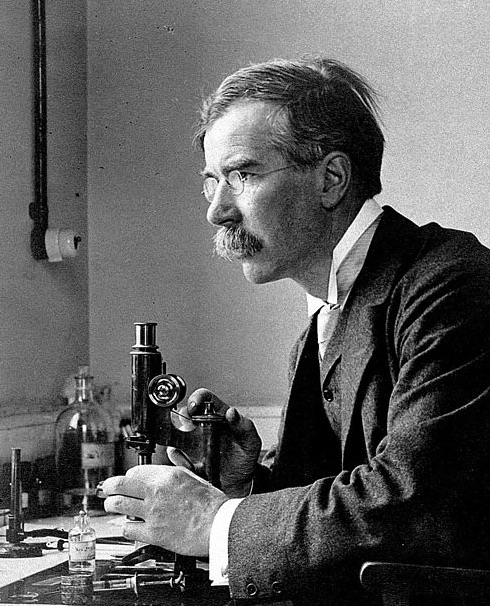
Sir Almroth Edward Wright was born on August 10, 1861, in Middleton Tyas, North Yorkshire, England. In 1882, he graduated from Trinity College Dublin, with first-class honors in modern literature, while also taking courses in medicine that led to a degree in medicine the following year. Wright’s friend and fellow-Irishman George Bernard Shaw would later state that Almroth was his inspiration for the character, Sir Colenso Ridgeon in the play The Doctor’s Dilemma, written in 1906.
Wright’s early research focused on the study of bacterial infections and the immune system response. Conducting extensive studies on the interactions between bacteria and the human immune system, he developed a technique known as “vaccine therapy” or “opsonic therapy,” which aimed to enhance the body’s protective response to bacterial infections. This involved using vaccines to stimulate the production of opsonins, molecules that enhance the ability of immune cells to engulf and destroy bacteria. In collaboration with Sir William Leishman, he developed a vaccine, using typhoid bacteria killed by heat, to stimulate the immune system’s response to exposure to the typhoid fever bacterium. This discovery immunized the British soldiers from typhoid fever during World War 1.
Wright’s work laid the foundation for the development of additional vaccines against various bacterial diseases, including enteric tuberculosis and pneumonia, and contributed to the study of opsonins (blood enzymes that make bacteria more susceptible to phagocytosis by white cells.) In spite of his groundbreaking research on antibiotics, Wright recognized that eradicating bacteria in this way might actually purge the “weaker” strains, leading to the survival of a “stronger” strain that would be more resistant to our immune system responses. His warnings turned out to be prophetic as modern science now observes this phenomenon in various kinds of bacteria.
Throughout his career, Wright’s research was conducted at various institutions such as, St. Mary’s Hospital in London and the Royal Army Medical Corps where held academic and medical positions, and he was knighted in 1906 for his contributions to medical science. Sir Almroth Wright passed away on April 30, 1947, in Farnham, Surrey, England.
